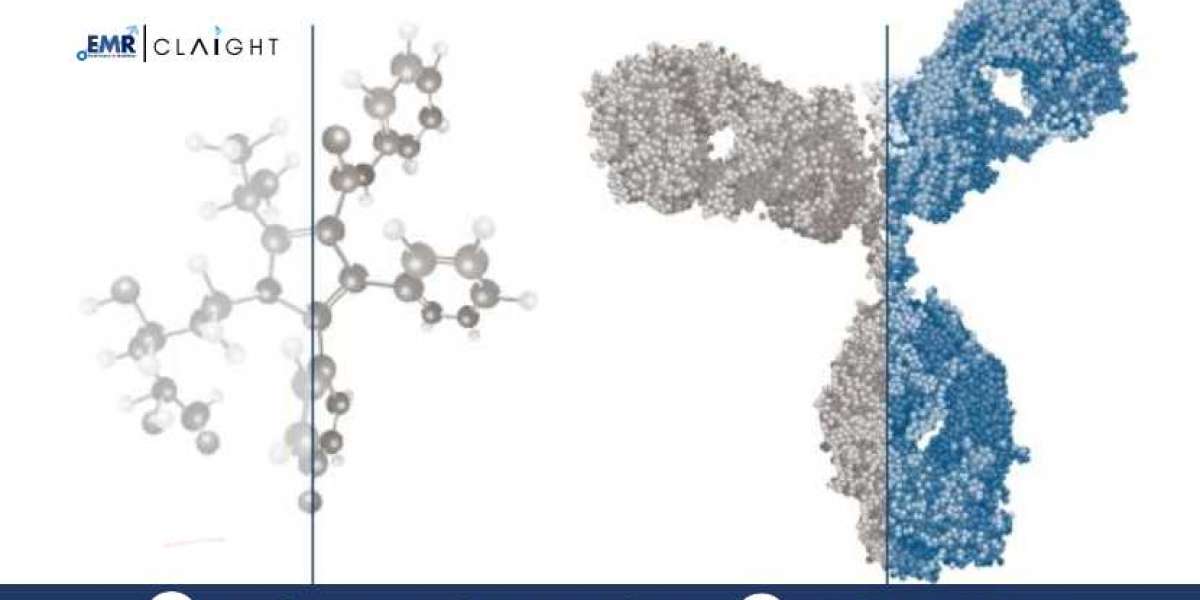India Biosimilar Market Overview
The India biosimilar market Size in India is emerging as a vital part of the healthcare sector, providing affordable alternatives to expensive biological drugs. As chronic diseases such as cancer, autoimmune disorders, and diabetes become more prevalent, the demand for biological therapies has emerged. However, the high cost of biologics has led to the growing popularity of biosimilars. Biosimilars are biological medical products that are highly similar to an already approved biological reference, with no clinically significant differences in terms of safety, efficacy, and quality. The adoption of biosimilars offers an affordable and accessible way to address the growing demand for biological treatments in India.
India Biosimilar Market Size and Share
In 2024, the Indian biosimilar market was valued at INR 2.20 billion. The market is expected to grow at a remarkable CAGR of 25.20% during the forecast period of 2025-2034, which will push the market size to INR 16.6 billion by 2034. This significant growth is attributed to several factors, including the rise in chronic diseases, the need for cost-effective treatments, and regulatory developments encouraging the production and use of biosimilars. By 2025, the market is anticipated to increase to INR 2.8 billion and continue growing exponentially, driven by increased government focus on healthcare accessibility and affordability.
India Biosimilar Market Trends
- Rising Prevalence of Chronic Diseases
The growing incidence of chronic conditions such as cancer, rheumatoid arthritis, and diabetes is a major driver of the Indian biosimilar market. With an aging population and an increase in lifestyle-related diseases, the demand for biologics, including biosimilars, is expanding rapidly. This trend is expected to continue as the healthcare system focuses on providing affordable treatment options for chronic diseases that require long-term management. - Cost-Efficiency of Biosimilars
Biosimilars offer a significant cost advantage over original biological drugs, making them an attractive option for both healthcare providers and patients. As the Indian government and private healthcare providers focus on reducing healthcare costs, biosimilars provide a cost-effective alternative without compromising on safety or efficacy. This price differential is expected to drive widespread adoption, especially in lower-income populations who may not afford branded biologics. - Advancements in Manufacturing Technologies
The biosimilar market in India has been witnessing significant advancements in manufacturing technologies. Companies are investing in state-of-the-art facilities and developing more efficient processes for the production of biosimilars. These advancements have reduced manufacturing costs and enhanced the quality of biosimilars, making them more competitive in terms of pricing and quality. This trend is expected to enhance the growth of the market as biosimilars become more widely available. - Regulatory Support and Approval Mechanisms
The Indian government has been supportive of the biosimilar market, providing regulatory frameworks that facilitate the approval of biosimilars. Regulatory bodies like the Drug Controller General of India (DCGI) have streamlined the approval process for biosimilars, making it easier for manufacturers to bring these products to market. This regulatory support, combined with international collaborations and adherence to global quality standards, has bolstered the market's growth prospects.
Claim Your Free Sample Report Now: India Biosimilar Market
India Biosimilar Market Analysis
- Product Class Segmentation
The Indian biosimilar market can be segmented into various product classes, such as monoclonal antibodies, recombinant hormones, immunomodulators, anti-inflammatory agents, and others. Among these, monoclonal antibodies are the largest segment due to their use in treating such as cancer, autoimmune diseases disorders, and chronic inflammatory diseases. Monoclonal antibodies are in high demand, and the availability of biosimilars in this category has helped reduce the cost burden on patients and healthcare systems. - Manufacturing Type Segmentation
Biosimilars are primarily manufactured through two approaches: in-house manufacturing and contract manufacturing. In-house manufacturing offers more control over production processes and quality, which is essential for ensuring the consistency and safety of the biosimilars. On the other hand, contract manufacturing is gaining popularity as it allows biosimilar manufacturers to reduce costs and expand production capacity. Both manufacturing types contribute to the growth of the market, with contract manufacturing being a viable option for small and medium-sized pharmaceutical companies. - Application-Based Segmentation
Biosimilars are used for treating a variety of medical conditions, including blood disorders, growth hormone deficiency, chronic and autoimmune disorders, oncology, and others. Oncology is one of the largest applications for biosimilars, especially for cancers such as breast cancer, lung cancer, and colorectal cancer. Blood disorders and autoimmune diseases also contribute significantly to the market's expansion. The rising demand for affordable treatment options for these conditions is expected to drive the growth of the biosimilar market in India. - Regional Market Insights
India’s biosimilar market is expected to grow rapidly across all regions due to the increasing prevalence of chronic diseases. Urban centers like Delhi, Mumbai, and Bangalore are the primary markets for biosimilars due to better healthcare infrastructure and access to advanced treatments. However, rural regions are also witnessing a rise in biosimilar adoption, as the Indian government is focused on improving healthcare accessibility and affordability in underserved areas. With continued investment in rural healthcare, biosimilars are expected to play a crucial role in expanding healthcare access.
India Biosimilar Market Growth
The growth of the biosimilar market in India is driven by several factors, including the rising prevalence of chronic diseases, such as cancer, autoimmune disorders, and blood disorders. The increasing affordability and accessibility of biosimilars compared to traditional biological therapies are key drivers of the market. Additionally, regulatory support for biosimilar approval, coupled with advancements in manufacturing technologies, is further fueling market growth. The Indian government's initiatives to improve healthcare infrastructure, promote public health campaigns, and reduce the cost of medicines are expected to create significant opportunities for biosimilar manufacturers.
Recent Developments Challenges
- Regulatory Updates for Biosimilars
In 2023, the Drug Controller General of India (DCGI) announced a revision in the guidelines for the approval of biosimilars. These updates aimed at enhancing the efficiency and transparency of the approval process, making it easier for manufacturers to enter the market. The Indian government has also been working on regulatory harmonization with international standards, ensuring that Indian biosimilars meet global quality standards. - Technological Advancements in Biosimilar Production
In 2023, several Indian companies adopted advanced manufacturing technologies for biosimilars, including continuous bioprocessing and cell-line optimization. These innovations have not only improved the efficiency of production but also reduced costs, making biosimilars more competitive in the global market. Companies such as Biocon and Dr. Reddy's Laboratories have also made substantial investments in biosimilar manufacturing plants to expand production capacity. - Challenges in Market Penetration
Despite the potential for biosimilars in India, market penetration remains a challenge due to factors such as regulatory hurdles, lack of awareness among healthcare providers and patients, and slow adoption in rural areas. Education campaigns and healthcare provider engagement are critical for overcoming these challenges and increasing adoption. - Global Competition and Pricing Pressures
With multinational pharmaceutical companies entering the Indian biosimilar market, local manufacturers face increasing competition. International companies bring experience, brand recognition, and advanced technologies, creating pricing pressures on domestic manufacturers. To remain competitive, Indian companies need to focus on cost-efficient manufacturing, innovation, and strategic partnerships with global players.
Key Players
- Pfizer Inc.
Pfizer is a key player in the Indian biosimilar market with a strong portfolio of biosimilars, including monoclonal antibodies for the treatment of cancer and autoimmune diseases. The company has leveraged its global expertise in biological drugs to offer high-quality biosimilars at competitive prices. Pfizer's commitment to improving access to biological treatments has positioned it as a market leader in India's biosimilar sector. - Biocon Limited
Biocon is one of India's leading biosimilar manufacturers, offering a wide range of biological products for treating diseases such as cancer, diabetes, and autoimmune disorders. With a robust portfolio of biosimilars and a strong focus on RD, Biocon has become a major player in the global biosimilar market. The company has made significant investments in manufacturing facilities to expand its production capabilities. - Celltrion Healthcare
Celltrion is a South Korean biosimilar manufacturer that has established a strong presence in the Indian market. The company's biosimilar offerings include monoclonal antibodies and treatments for oncology and autoimmune disorders. Celltrion's competitive pricing, high-quality products, and global experience make it a formidable competitor in the Indian biosimilar market. - Viatris Inc. (Mylan)
Viatris, previously known as Mylan, is a global leader in the production of biosimilars, with a significant presence in the Indian market. The company focuses on making affordable and accessible treatments available to patients worldwide. Viatris' biosimilars include products for oncology, rheumatoid arthritis, and diabetes, among other therapeutic areas.
Other Companies
Novartis AG, Samsung Bioepis Co. Ltd., Stada Arzneimittel AG, Teva Pharmaceutical Industries Ltd., Intas Pharmaceutical Ltd., LG Life Sciences Inc., Amgen Inc., Dr. Reddy's Laboratories, Coherus Biosciences Inc., and Biocad are also notable players contributing to the Indian biosimilar market's expansion.
FAQs
Q: What are biosimilars?
Biosimilars are biological products that are highly similar to an already approved biological reference, with no clinically significant differences in terms of safety, efficacy, and quality. They offer a more affordable alternative to branded biological therapies.
Q: What are the major drivers of the biosimilar market in India?
The primary drivers include the increasing prevalence of chronic diseases, the demand for cost-effective treatments, regulatory support for biosimilar approvals, and advancements in manufacturing technologies.
Q: How are biosimilars different from generic drugs?
Unlike generic drugs, which are exact copies of small molecule drugs, biosimilars are similar but not identical to their reference biological products. They are developed through biotechnology and undergo rigorous testing to ensure they meet safety and efficacy standards.
Q: What are the challenges in the biosimilar market?
Challenges include regulatory hurdles, limited awareness among healthcare providers and patients, competition from multinational companies, and the high cost of production in some cases.
Read Our Blog
Top 6 Companies in the United States Dialysis Services Market - https://bitl.to/4B6w
How Trump's New Tariff Plans Impact the Global Biopharma and Healthcare Industry - https://bitl.to/4B70

![[Technology] Steel Buckets with Lug lids will become a popular trend. Do you understand the technical requirements of th](https://ourpet.com.br/upload/photos/2025/03/JlKqPvwbpdBMzJUzTMZJ_25_df751ed3e93cf451b5ca4b079e9d35c8_image.png)

